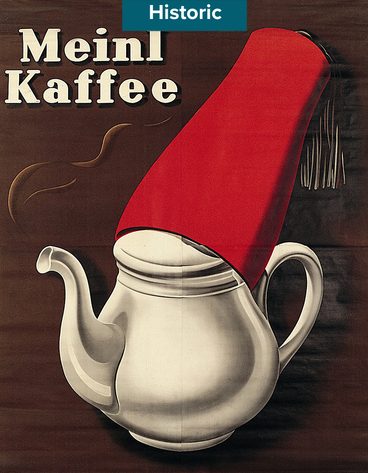Julius Meinl I is the founder of the company of the same name. He is considered to be a pioneer of the coffee industry. The sale of freshly roasted coffee was first made possible by the roasting method he developed in 1862. Thanks to this invention by Julius Meinl I, coffee began the process of becoming one the world’s most widely consumed beverages, and one of the world’s most valuable consumer goods.
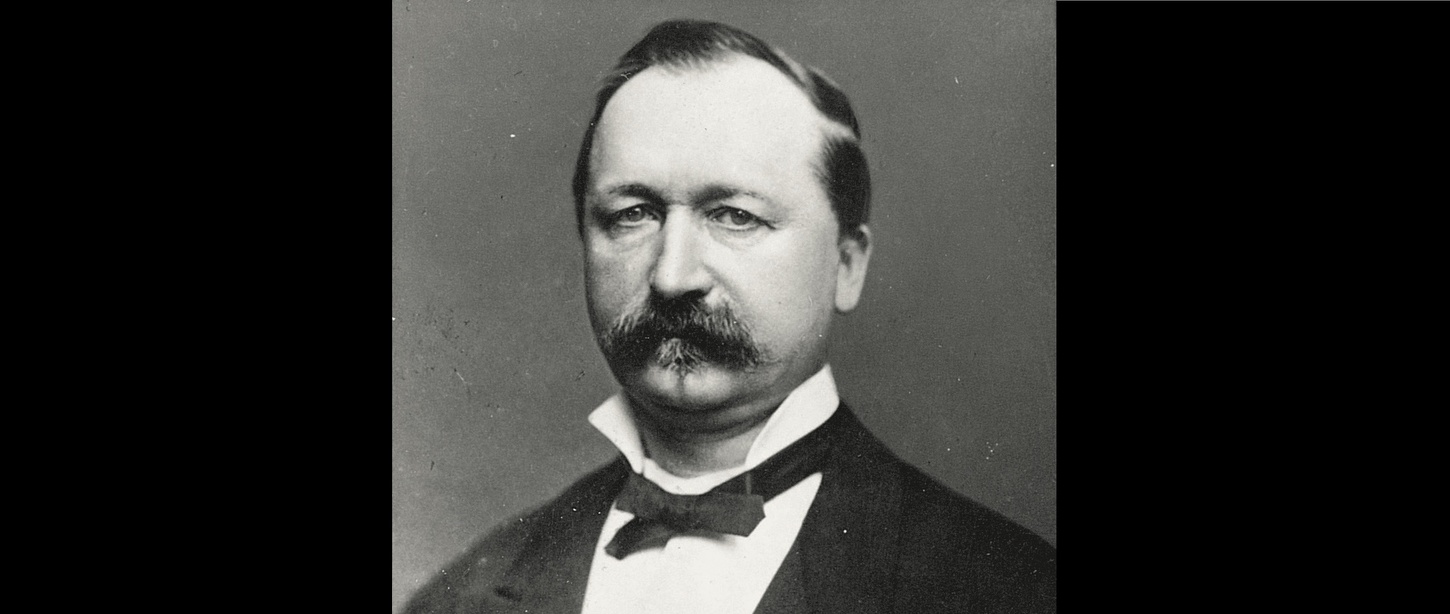
Julius I
* 10 April 1824 in Graslitz, Bohemia; † 24 December 1914 in Vienna
A Pioneer of
the Coffee Industry
Julius I’s Timeline
1824-1914
Personal Life
Julius Meinl I was born on 10 April 1824, the son of master baker Franz Anton Meinl and his wife Anna (née Dotzauer), in Graslitz near Karslbad in northern Bohemia (modern-day Karlovy Vary in the Czech Republic). His grandfather on the Meinl side of the family was also a master baker in Graslitz.
Julius Meinl I died after a short illness on the morning of 24 December 1914. He was 91 years old. After lying in state in St. Stephen’s Cathedral, he was laid to rest in the family crypt at Dornbach Cemetery in Vienna.
Apart from his son Julius Meinl II, he left behind his married daughter Anna Floderer and several grandchildren.
Personal Life
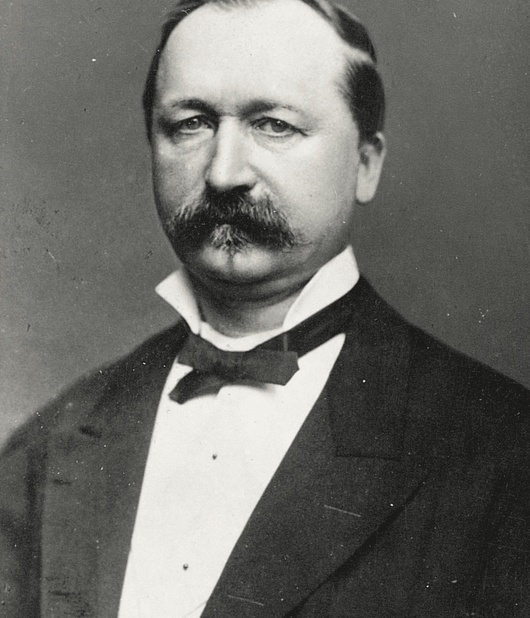
1824–1862
Early Life
In 1845, Julius embarked on an apprenticeship at the ‘indigo, coloured goods and commission business’ of his uncle Joseph Dotzauer, a respected merchant, in Prague. On 1 June 1849, one year earlier than intended, he completed his training there as a ‘junior merchant’. Like many skilled craftsmen and journeymen from Bohemia, Julius Meinl also found himself drawn to the imperial capital, Vienna. Internal migration was fuelled by the demise of the uncompetitive guild economy, which was increasingly being pushed aside by a market economy focused on mass consumption. For this reason, most journeymen no longer saw any realistic chance of themselves becoming masters of their trade.
Vienna was at this time the pulsating centre of a Danube Monarchy in the grip of rapid social and economic change. The bourgeois revolution of 1848 heralded a phase of liberalisation. This also included freedom of movement for subjects within the empire, who now increasingly came to Vienna thanks to the newly constructed railway network. In order to cope with the rapid rise in the number of inhabitants, the city’s territory was expanded with the incorporation of the suburbs in 1850. In 1857, Emperor Franz Joseph ordered the demolition of the city walls. The glacis, the open area between the city walls and the suburbs, was released for development. The mediaeval lanes of the Old Town were replaced with wide boulevards lined with magnificent palaces and many new businesses.
When he considered founding a business, Julius Meinl benefited from earlier far-reaching reforms, in particular the freedom to trade and brand protection. The outdated guild-related restrictions were finally lifted with the liberal commercial code introduced in 1859. Anyone who wanted to open a business no longer needed a special concession to do so. Moreover, traders were now allowed to pursue any business activity they liked. A speciality food retailer like Meinl was therefore now also able to roast coffee away from a coffee house. Meinl was not the only one to benefit from this liberalisation. The number of coffee houses in Vienna therefore also grew rapidly from 1850 onwards. Another important precondition for the successful founding of Meinl’s company was the ‘Law for the protection of commercial brands and other designations’ enacted in 1858. This protected merchants against unfair competition and the deception of customers, which opened up the possibility for Meinl to make a name for themselves through the high quality of their wares for the very first time.
Early Life
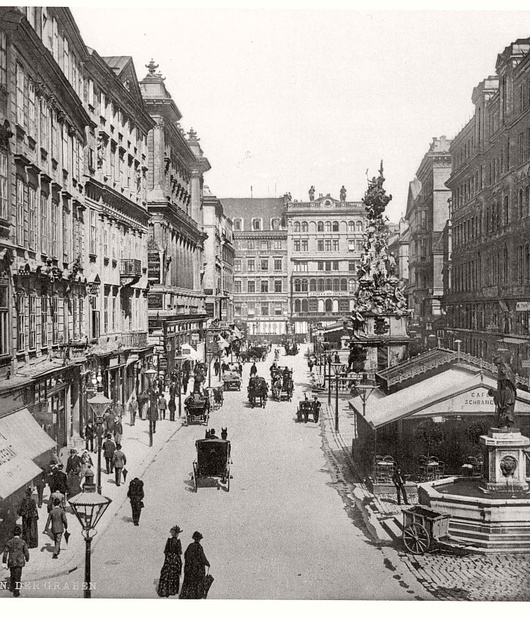
1862–1892
Founding of the company
Julius Meinl I’s fine food business began to trade on 2 February 1862 and shortly thereafter he was able to open his first grocer’s shop, located in Vienna city centre. It was most probably a small shop space with a display window. Meinl’s apartment was situated in the same building. He was supported in his business activities by a domestic servant. Apart from raw coffee, Meinl also sold cocoa, tea, rice and sugar. The business was noted for its high awareness of quality and customer-friendliness from the outset. Indeed, Julius Meinl I supposedly always greeted his customers with the words “How may I be of service?”.
As a consequence of the economic crisis that came hot on the heels of the Vienna Stock Exchange crash in 1873, Meinl found himself having difficulty making payments the following year. Julius Meinl I arranged with his creditors for fifty percent of his debts to be written off. The remaining debts were only paid off in 1910. This new beginning was initiated with a radical savings plan.
The foundations for the company’s soon to follow rapid rise was Meinl’s idea to offer ready-made coffee blends. Until then, coffee was only ever sold raw. Customers had to roast the green beans themselves at home in roasting drums or pans, which usually produced less than satisfactory results. After lengthy experimentation, Julius Meinl I developed a patented roasting method that unlocked and at the same time largely retained the aroma of the coffee. He achieved this through a special cooling technique and the addition of oxygen during the roasting process. In order to be able to offer a variety of flavours, he tried out blends made from different kinds of coffee.
In 1877, Meinl started selling freshly roasted coffee in his shop. The huge number of customers meant he had to move to a larger shop premises. Meinl was now no longer just a grocer like so many others but rather a manufacturer of branded consumer goods. As he was the first and only retailer to offer ready-made coffee blends, he became famous overnight.
In order to meet the sharply rising demand for roasted coffee, Meinl purchased a five-storey house in Vienna and developed it into a factory. At the heart of the factory was a newly built large roasting machine that improved the flavour and shelf life of the coffee. Separating the production area and salesrooms created the basis for the company’s further expansion. The new factory building accommodated the roasting house and storerooms as well as the main office, salesrooms and post room. All goods ordered from outside Vienna were shipped from here.
Founding of the company
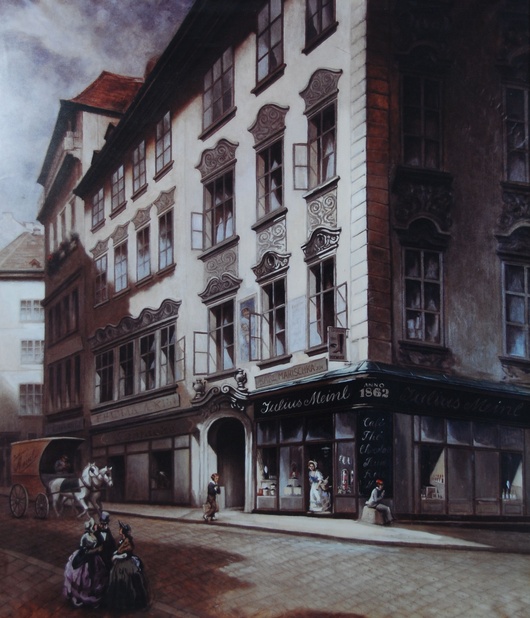
1892-1900
Successful Expansion
The son of the company’s founder, Julius Meinl II, was taken on by the father’s company as an authorised officer in 1892 and, together with his father, exerted increasing influence on the company’s further development.
The company’s expansion was helped by an economic boom that commenced in 1895 and was characterised by massive industrialisation as well as increased demand for consumer goods. Meinl reacted to the growth in population and gradually opened stores in the suburbs.
Around the year 1900, the store network of the Meinl company in Vienna already comprised eleven shops. There were also five warehouses in the suburbs and 40 ‘depots’ in the provinces, i.e. outside of Vienna. The depots were organised similarly to a franchise system. The merchants that took them on were granted a time-limited licence for the exclusive sale of Meinl goods. After the licence expired, Meinl usually opened a shop in the area, as long as sales had developed well.
Successful Expansion
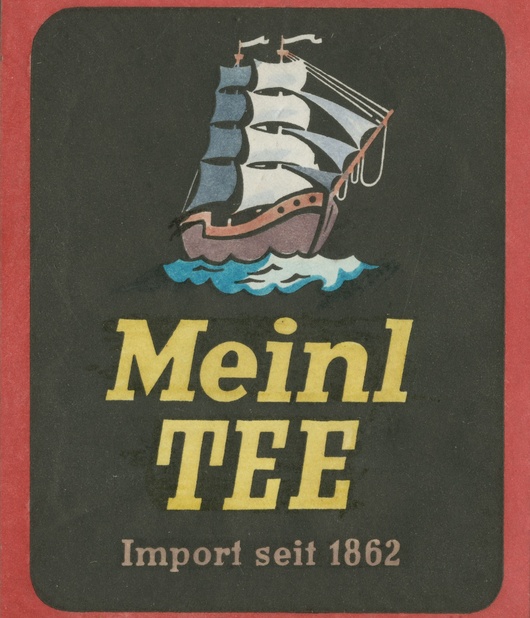
1900-1914
Increasing Influence
Meinl was the biggest importer of coffee and tea in Austria-Hungary around the turn of the century; the coffee roast house was the largest in the imperial and royal monarchy. Since 1900, the company had had two head offices: one in Vienna and one in Budapest. The first stores were subsequently opened in Hungary, Bohemia, Moravia and Moravia-Ostrava. After the turn of the century, Meinl expanded the product range and began producing its own cocoa and chocolate. Numerous other own products followed later.
Of great importance to Meinl’s entrepreneurial success were targeted marketing and pithy advertising as well as highly trained employees and the standardised design of the stores by means of a corporate design.
Meinl distinguished itself from the competition with above-average training and development of its sales staff. The sales staff training also underwent constant further development. Each customer was to be specifically addressed using a psychologically based conversational technique in order to build up trust and subsequently sell as many expensive items as possible and conclude additional transactions. The sales staff wore the same attire in all stores. They wore a cream-coloured shirt, a discretely patterned tie and a grey jacket.
By the outbreak of the First World War, Meinl had attained a dominant position on the market as the biggest food company of the imperial and royal monarchy. In total, the company employed 1,200 workers. At the beginning of 1914, there was a total of 115 outlets, of which 44 in Vienna. There were ten stores in Budapest alone, five in Prague, three each in Graz and Brno. Meinl was represented with one store in each of a further 45 towns and cities. In addition, there were another 185 depots.
A sophisticated logistics system ensured that the company’s products were also available in the farthest-flung corners of the empire. A key role in this was played by the mail-order departments at the two head offices in Vienna and Budapest. These shipped products to retail and large customers and supplied the depots.. In 1913, the mail-order department at head office in Vienna alone generated far more turnover than all the stores combined.
Meinl was therefore the first food company in Austria-Hungary to have established a mass retail system based on the British multiple-retail model that was pioneered by families such as the Sainsburys.
Increasing Influence
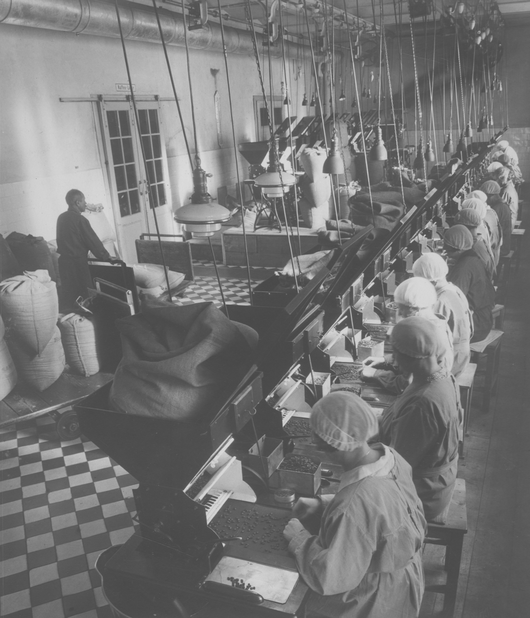
1914
Succession
In 1913, Julius Meinl I retired from the company and handed his son Julius Meinl II a store network that extended across the entire monarchy.
Julius Meinl I died after a short illness on the morning of 24 December 1914. He was 91 years old. After lying in state in St. Stephen’s Cathedral, he was laid to rest in the family crypt at Dornbach Cemetery in Vienna.
Succession
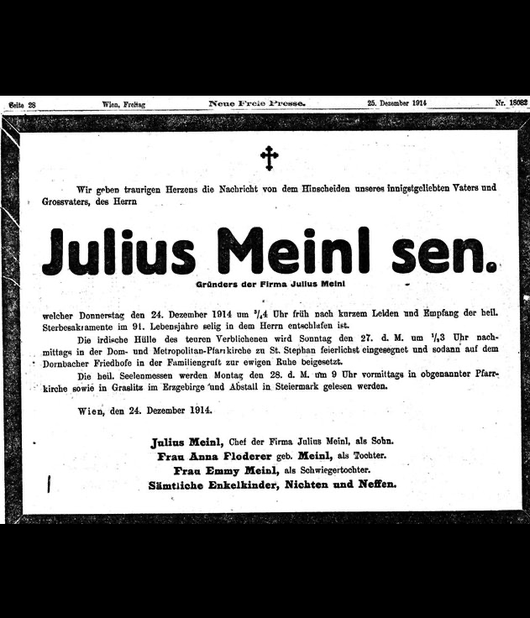
Julius Meinl Coffee
Julius Meinl I was the founder of a new category, selling ready roasted coffee for the first time in 1862 in Vienna, Austria.
